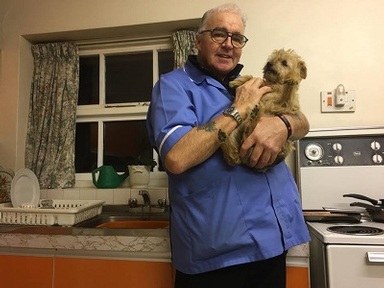Text messages stop one in six patients from forgetting to take medicine
Text messaging has been found to prevent one in six patients from forgetting to take their prescribed medicine.

The study carried out by researchers at Queen Mary University in London, explored whether text messaging improved the use of blood pressure and cholesterol lowering medication for the prevention of heart attacks and stroke – the most common causes of death worldwide.
In the trial, patients were divided randomly into two groups; a ‘text message’ group who received periodic text messages and a ‘no text’ group who received no text messages.
The ‘text message’ group received texts every day for two weeks, alternate days for two weeks and then weekly for six months, asking if they had taken their medication that day. Patients who had not, or did not reply, were telephoned and offered help.
In the ‘no text’ group, 25 per cent of patients stopped their medication completely or took less than four fifths of their prescribed treatment, compared with only nine per cent in the ‘text message’ group.
Professor David Wald, consultant cardiologist and lead author, Queen Mary University of London, said: “An important and overlooked problem in medicine is the failure to take prescribed medication. The results of this trial show that text message reminders help prevent this in a simple and effective way. More than just a reminder, the texts provided the link to identify patients who needed help.”
David Taylor, emeritus professor of pharmaceutical and public health policy at UCL, believes the health implications of the successful trial are considerable from both an economic and a health gain perspective. He said: “Most people now own a mobile phone and text messaging could be coupled with each relevant prescription, preventing several thousand heart attacks and strokes in the UK each year. The method is not limited to cardiovascular disease prevention and could be used for patients on treatment for other chronic diseases.”
Around a third of people do not take their treatment as prescribed, which greatly reduces the potential benefits and costs the NHS over £500m in wasted medicines and treating avoidable illness.
Some patients forget to take their tablets and others stop because of uncertainty over the benefits of treatment.
The trial was published in the journal PLOS ONE.
Latest Innovative Care News
 13-May-19
'Pink drink' brain cancer treatment rolled out across NHS in memory of Baroness Jowell
13-May-19
'Pink drink' brain cancer treatment rolled out across NHS in memory of Baroness Jowell
 25-Apr-19
Louis Tomlinson helps 83-year-old who lost wife to dementia complete bucket list
25-Apr-19
Louis Tomlinson helps 83-year-old who lost wife to dementia complete bucket list
 05-Mar-19
Care worker of the year inspires nine-year-old son to work in care
05-Mar-19
Care worker of the year inspires nine-year-old son to work in care
 12-Feb-19
Michael McIntyre's jokes tested to see if they stop elderly catching flu
12-Feb-19
Michael McIntyre's jokes tested to see if they stop elderly catching flu
 25-Jan-19
Ninety-year-old and his dog can stay together, thanks to care worker
25-Jan-19
Ninety-year-old and his dog can stay together, thanks to care worker